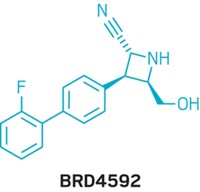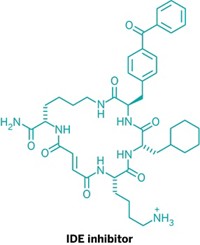Advertisement
Grab your lab coat. Let's get started
Welcome!
Welcome!
Create an account below to get 6 C&EN articles per month, receive newsletters and more - all free.
It seems this is your first time logging in online. Please enter the following information to continue.
As an ACS member you automatically get access to this site. All we need is few more details to create your reading experience.
Not you? Sign in with a different account.
Not you? Sign in with a different account.
ERROR 1
ERROR 1
ERROR 2
ERROR 2
ERROR 2
ERROR 2
ERROR 2
Password and Confirm password must match.
If you have an ACS member number, please enter it here so we can link this account to your membership. (optional)
ERROR 2
ACS values your privacy. By submitting your information, you are gaining access to C&EN and subscribing to our weekly newsletter. We use the information you provide to make your reading experience better, and we will never sell your data to third party members.
Biological Chemistry
Stopping Gut Microbe SideSteps Cancer Drug’s Side Effect
Selective bacterial enzyme inhibitors relieve diarrhea side effect in mice treated with a colon cancer drug
by Carmen Drahl
November 8, 2010
| A version of this story appeared in
Volume 88, Issue 45
Blocking a bacterial enzyme alleviates a dangerous side effect of a colon cancer drug in mice, according to a multi-institutional research team (Science 2010, 330, 831). Irinotecan is one of just three drugs available to treat colon cancer, but it causes severe diarrhea that limits the doses patients can handle. Gut bacteria snip a sugar group off an irinotecan metabolite to generate a molecule that’s thought to cause diarrhea. So Matthew R. Redinbo of the University of North Carolina, Chapel Hill; Sridhar Mani of Albert Einstein College of Medicine; and colleagues found a way to stop the sugar cleavage while not killing the bacteria, which are essential for good health. The researchers solved the X-ray crystal structure of the sugar-cleaving enzyme produced in Escherichia coli and learned that it contains a loop not seen in its mammalian version. With that knowledge, they developed selective enzyme inhibitors that reduced diarrhea in mice treated with irinotecan. The team hopes that the findings can be translated to humans and that the concept of tweaking gut bacteria’s activities can be applied more broadly to drug development.




Join the conversation
Contact the reporter
Submit a Letter to the Editor for publication
Engage with us on Twitter